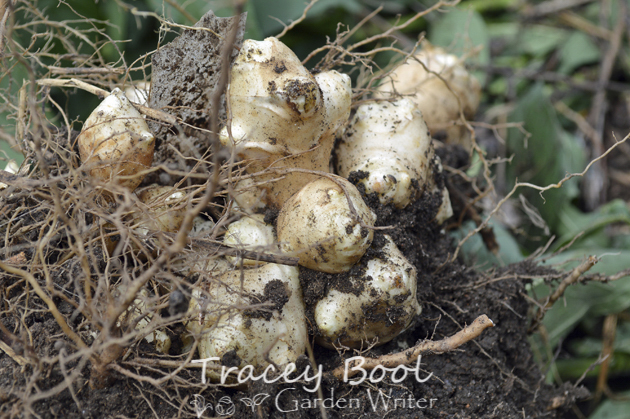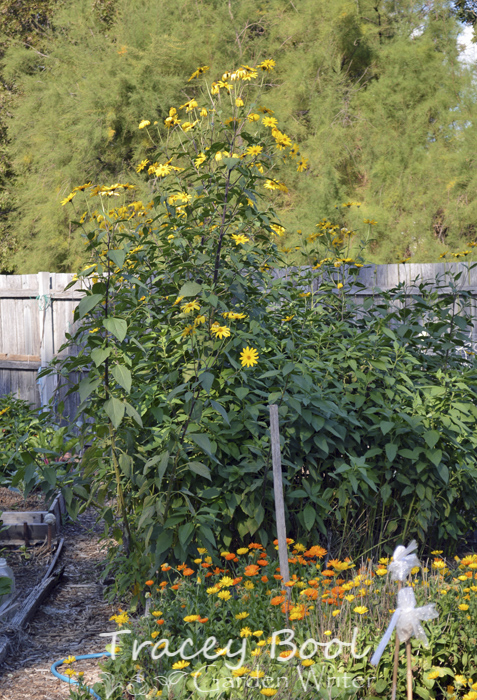|
Jerusalem Artichoke
(17 April 2014) Meet the truly outstanding Jerusalem artichoke (Helianthus tuberosus) – this prolific plant is anything but an unassuming wall flower. I must admit I haven’t been this excited about produce since I made my very first batch of lemonade last winter. But before rambling on about the taste of its tubers, let me tell you a bit about the plant itself. Jerusalem artichoke is a hardy, easy to grow, herbaceous tuber of up to 3m in height, with cheerful yellow flowers during early autumn (it hales from the daisy family). It reaches maturity in around six months, producing copious quantities of edible tubers at harvest time. Jerusalem artichokes grow well in full sun to partly shaded positions and tolerate exposed sites, including those which receive high winds. In fact, these plants are commonly used to form wind breaks and offer protection from hot afternoon sun to more vulnerable plants in the veggie patch. On the soil front, these gems require a nutritious, well-drained soil and reliable moisture to form good-size tubers for eating. Otherwise, if grown for ornamental and mechanical purposes only (a crime, I know), they will tolerate relatively dry conditions and still perform well. A word of warning though: these plants are exceptionally apt at reproducing and therefore are best grown in an enclosed bed or a permanent planting site. You can begin harvesting Jerusalem artichoke tubers around 4 weeks after flowering commences – they don’t keep well so just dig up what you need as necessary. And for the part you are no doubt waiting on the edge of your seats for – preparing and promptly devouring the tubers – Jerusalem artichokes can be grated raw when fresh and used in salads, roasted, boiled whole, mashed, or I suspect, but am yet to try, used to make gnocchi. Go easy on the quantities consumed though, as these babies are fondly known as ‘Fartichokes’. The best part is you can eat these amazing morsels guilt free and with the knowledge that they are exceptionally good for you. Jerusalem artichokes are high in iron and are a natural source of Thiamin, Phosphorous and Potassium. Unlike potatoes, they are free of starch, which makes them a great alternative for those suffering from diabetes. |


